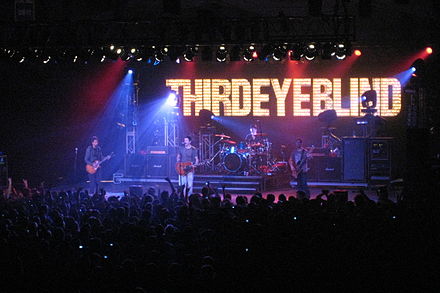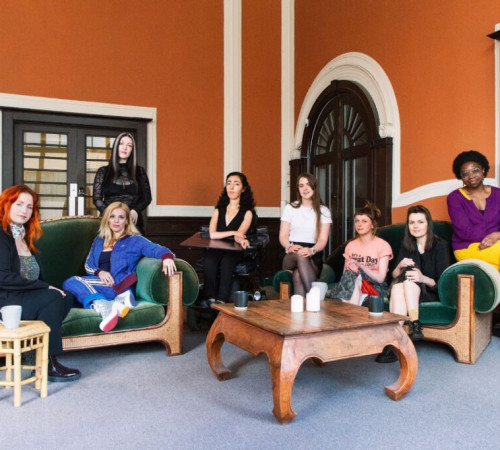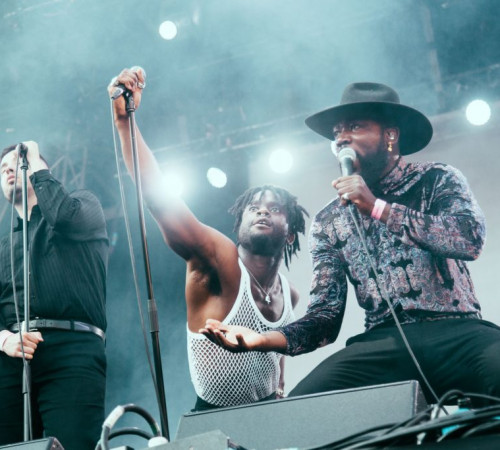 In the last five years or so, we’ve started to see bands that are past their primes turn to all kinds of creative measures in the hopes of staying relevant. In most cases these bands are still touring, or at least playing the occasional shows.They’re also looking for new ways to reach fans—and most of them are using various forms of technology to do so.
In the last five years or so, we’ve started to see bands that are past their primes turn to all kinds of creative measures in the hopes of staying relevant. In most cases these bands are still touring, or at least playing the occasional shows.They’re also looking for new ways to reach fans—and most of them are using various forms of technology to do so.
The most glaring example that many will recall is when U2 partnered with Apple to give an album to every iPhone user during a launch event. It was a massive marketing stunt, and it went over so poorly that legendary front man Bono wound up issuing an apology to the public. It turns out people don’t necessarily like having music downloaded to their phones when they never asked for it. Still, this is a great example of how some aging bands are turning to tech to stay relevant.
Another noteworthy example is the growing trend of old classic rock groups using online gaming to keep themselves in front of younger fans. Developers like Playtech and NetEnt operating in the world of online slots have worked hard to put out a diverse selection of games, working with themes from film, television, music, and pop culture. Groups like Guns N’ Roses, Motörhead, and a few others have allowed their likenesses, and in some cases even their music, to be used as material for digital slot reels. This has proved to be an effective way to appeal to older fans and young gamers alike as they try to keep their legends going online.
These are all pretty interesting cases. But in some situations we also see bands that are moving past their primes persevering and staying relevant the good old-fashioned way of touring and making new music. Such is the case with Third Eye Blind, the San Francisco rock/pop group that burst onto the scene in 1997 with their self-titled debut album. Building on the fame of tracks like “Jumper,” “How’s It Going To Be,” and “Semi-Charmed Life” the band became a beloved bunch just in time for the turn of the century.
In 1999, Third Eye Blind followed its debut album with the release of Blue, which didn’t do quite as well but still wound up selling more than a million copies in its first few years. The single “Never Let You Go” got a particularly long run on the radio and kept the band on people’s minds even if the album didn’t quite have the impact that the self-titled album had in 1997. The band struggled to stay relevant over the next decade with a few releases that failed to make a big impact. But the band still kept hanging around and putting out new tunes for an appreciative fanbase.
More recently, the band’s refusal to simply disappear seems to be paying off. The 2015 album Dopamine sounded more like their earlier songs, and in 2016 the group released a surprise EP called We Are Drugs, which might be its best work since 1999. Fast-forward to 2017, and the band is in the midst of its Summer Gods Tour while they celebrate the 20th anniversary of the debut album. Jenkins and drummer Brad Hargreaves are the only remaining original members, but the tour is still proving to be a veritable festival of nostalgia for late-‘90s and early-‘00s rock fans. Third Eye Blind is selling out mid-sized venues around the country, playing the 1997 album from start to finish, and along the way Jenkins is talking about releasing yet another EP—potentially a follow-up on a “Summer Gods” album that was planned but never finished.
None of this is to suggest that Third Eye Blind is going platinum anytime soon. But after a turbulent decade, the group seems to have found its footing, and it’s a nice reminder that sometimes all a band needs to do to stay relevant is keep playing and keep trying new sounds. We’re seeing a lot of older groups trying all kinds of gimmicks to keep their names in front of the public, but it’s refreshing to see a somewhat forgotten band accomplishing the same goal just by getting out and reminding people what made them popular in the first place.








